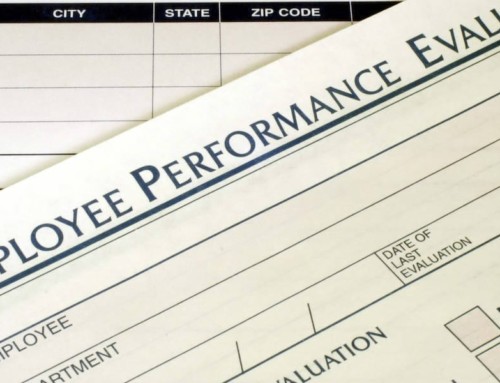We all love working with people that hold themselves accountable to completing their projects, initiatives and strategic plans as promised. Unfortunately, there aren’t as many of these people as we might like. As leaders, it’s up to us to hold individuals accountable and to encourage accountability among team members. Most of us just aren’t as good as it as we need to be.
The Harvard Business Review says one out of every two managers is terrible at accountability because 46% of all managers reporting to C-level executives across all business cultures were rated as being “too soft” on accountability. They just don’t hold people’s feet to the fire. In 2014, the Workplace Accountability Study of 40,000 participants stated “when it comes to holding others accountable, 82% either try but fail or avoid it”.
Accountability is critical.
If there isn’t accountability within an organization, important things do not get done and the focus on strategy and mission will be a longer time coming, if it comes at all. Accountability drives stronger employee engagement, faster innovation, and higher performing teams.
Accountability starts at the top.
Leaders must set the example and their teams will endeavor to match their leader’s level of commitment and integrity. Leaders must be clear on setting their own priorities, be reasonable in their expectations, and agile enough to shift resources when the inevitable unexpected happens.
Leaders can develop deeper accountability skills.
- Set clear expectations and clarify often. It is much easier and faster for someone to complete their work if all parties are clear on what is expected of them. Is it getting new distributors signed up and running within the existing distributor channel or just an outline of the approach to bringing on new distributors? Do you expect 100% quota attainment or is 95% good enough? Do you want four new products in production or six? Do you want the new initiative completed by the annual or fiscal year end?
- Inspect what you expect. Once you set and agree with your team members on reasonable expectations, how often do you check-in? It is important to follow up to show that you care and to make sure you know when projects get off track before they derail completely. “Check in” does not mean micromanaging; it does mean staying abreast of progress and periodically measuring progress against the original expectations.
- Share the impact. What is the scope of the impact this project, initiative, or strategy will have on the organization? Are other teams or decisions waiting on the completion of the assigned project? What are the opportunities or the consequences for the leader or the team if delivery is on-time? What happens if it’s late?
- Seek to understand and renegotiate the commitment. When there is a delay (which does happen), the leader’s job is to understand what happened and renegotiate the commitment, not to just direct it to be completed on time regardless.
- Ask questions and dig deeper. Specifically, get to the bottom of the root cause of any delay so the symptom(s) doesn’t cause further damage by becoming the sole discussion topic. Was it a legitimate unexpected delay: personal tragedy, vendor delivery delay due to a strike; or was it due to unplanned resource allocation or other projects taking precedent. This is not the time to blame but to create a complete picture of the problem so you can be reasonable in the renegotiation of the commitment. Given the cause of the delay and the significance of the project, do you need to adjust the deadline or do you need to adjust the resource (re)allocation to keep the deadline?
The Leader’s Role in Their Team’s Accountability
- Be true to yourself. Leaders need to leverage their own unique style and values and conduct accountability discussions based on their own authentic self plus or minus a little adjustment. The plus or minus is usually the leader’s growth area. If a leader tends to be a little softer, they might want to be more firm in their accountability discussions. If a leader’s natural inclination is a little too dictatorial, they might want to step it down with questions and collaboration.
- Create trust. Accountability is so much easier if team members trust their leader enough to bring them the good and bad news alike sooner versus later. Trust isn’t created overnight. Most leaders need to intentionally develop their actions and build trust with their team.
- Strive for true success. Don’t just insist on meeting a key deadline, find out what it will actually take to meet the deadline from your team’s current situation. Example: “With the issues you have described it appears we are two weeks behind. What creative tactics could we apply to make up the two weeks and finish this critical project on time?”
- Engage the consequences. Without consequences there will be no accountability. As a leader, you can identify or create both positive and negative consequences. Celebration, recognition, rewards, the proverbial “pats on the back”, etc., are all positive consequence for those who hold themselves accountable and complete their tasks on time. You need to also clearly communicate that redoing work, lost bonuses, tighter controls on future projects, performance improvement plans, and demotions for people who do not hold themselves accountable will be the consequences for incomplete work. Be careful to understand that doing any part of your team’s or individual’s job is not a consequence for them.
A culture of accountability doesn’t have to be a good thought or dream. Leaders can make it real with consistency in practicing clarity, seeking to understand, and utilizing their natural style plus or minus an upgrade or two. Further embed accountability into your culture with enhanced awareness and practicing upgrades to your skills.
At Kinetic Insights, our PathFinders are skilled in helping leaders unleash the greatness in themselves and in their organizations. Call or email us for a quick discussion that just might put you and your team on the path to significant change.
Gail A. Froelicher is Founder and CEO of Kinetic Insights, LLC. For over 11 years, Gail and her team of PathFinders have journeyed with their customers to forge successful paths in rapidly changing business environments.











Leave A Comment